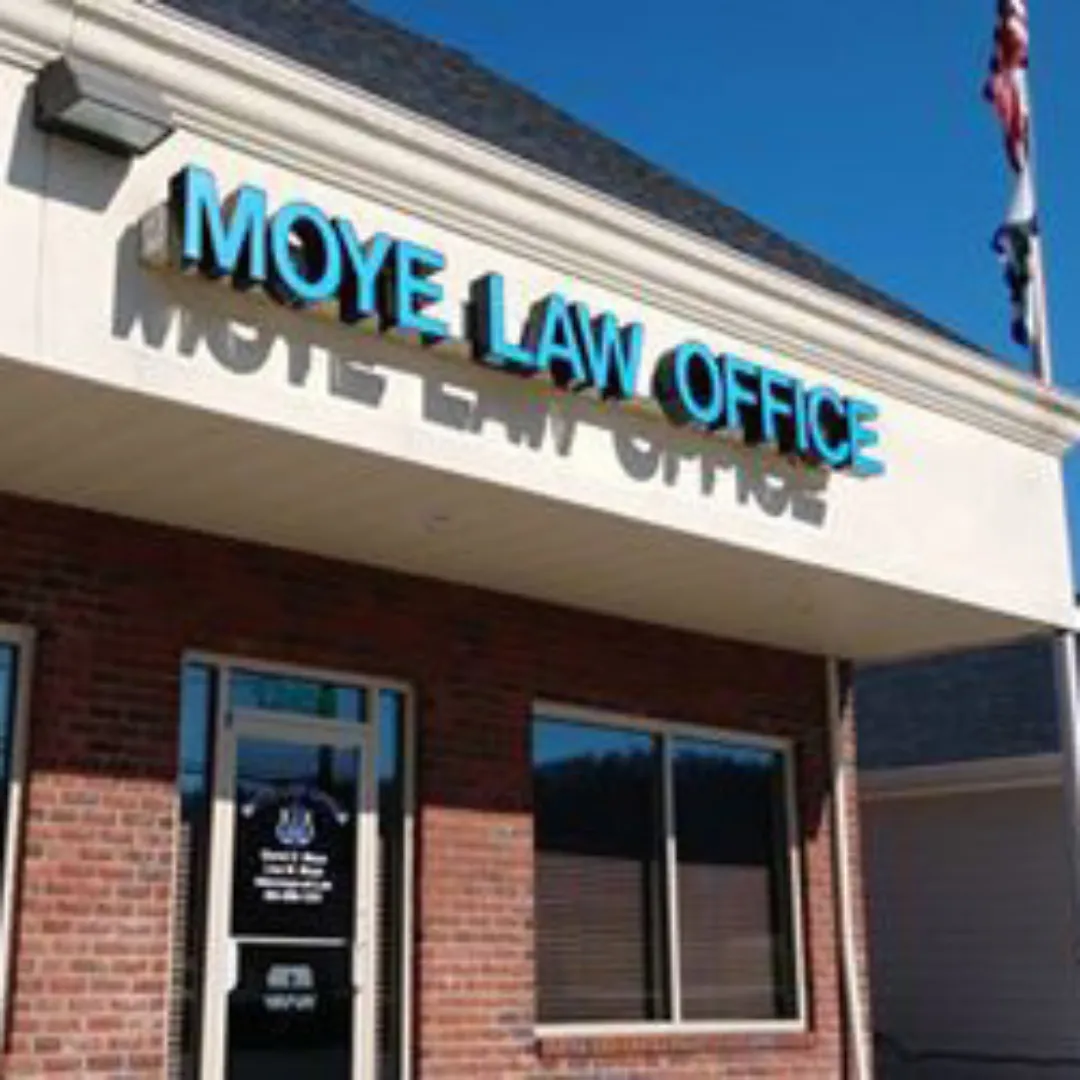
Blog
Blog

Expert Title Search Services for Your Real Estate Needs
Title Search Services for Real Estate: How to Verify Property Titles and Choose the Best Company
Whether you're a homebuyer, real estate investor, or seller, one critical part of every real estate transaction is verifying the property’s title. That’s where title search services come in.
A comprehensive title search uncovers any legal issues that might impact your ownership rights—such as liens, easements, or previous claims—and provides peace of mind before closing. In this guide, we’ll walk you through what title search services are, how they work, and how to choose the best provider near you.
What Are Title Search Services and Why Are They Essential in Real Estate?
Title search services involve reviewing public records and legal documents to confirm the legal ownership of a property. This process verifies that:
The seller has the right to transfer ownership
The property is free from liens, judgments, or encumbrances
There are no disputes or restrictions affecting the property
These searches are essential to ensuring a clean title, which protects all parties in the transaction and prevents legal issues down the road.
What Does a Title Search Include?
A thorough title search typically includes:
Chain of title (history of ownership)
Deed verification
Tax record review
Court judgment searches
Inspection of recorded liens, mortgages, and easements
Verification of legal description and parcel boundaries
How Do Title Searches Protect Buyers and Sellers?
For buyers, a title search helps confirm they’ll receive clear, marketable title—free of claims or legal defects. For sellers, it provides the documentation needed to finalize the deal without delays. For both, it reduces the risk of disputes, financing issues, or closing complications.
What Is the Role of Title Examinations and Title Insurance?
The title examination is the process of analyzing search results to identify any potential risks. Based on this review, a title insurance policy is often issued. This protects buyers and lenders from losses due to hidden or future title defects that may not have been found during the initial search.
How to Perform a Title Search: Step-by-Step Guide for Homebuyers and Investors
Access public records via the local county recorder or assessor’s office
Review the chain of title for ownership continuity
Check for open mortgages, liens, or unpaid taxes
Identify any recorded easements or restrictions
Ensure legal descriptions match current maps and surveys
While DIY title searches are possible, most buyers and investors hire professionals to ensure accuracy and avoid missing critical details.
What Public Records Are Checked During a Title Search?
Deeds and transfers
Property tax assessments
Probate and divorce records
Civil court judgments
Bankruptcy filings
HOA covenants and conditions
Zoning records and building permits
How to Identify Liens, Encumbrances, and Ownership Issues
Experienced title searchers look for red flags such as:
Mechanic’s liens from contractors
Unreleased mortgages
Claims from unknown heirs or co-owners
Easements that limit usage or access
Errors in prior deeds or legal descriptions
These issues must be resolved before closing.
When Should You Hire a Professional Title Search Company?
Hire a title company when:
You’re buying or selling a property
You’re refinancing a mortgage
You’re investing in real estate
You’re involved in probate or inherited property transfers
You suspect the title may have complications
Professionals not only perform the search but often coordinate title insurance, closing, and escrow services.
How to Choose the Best Title Search Company Near Me
Start with local real estate attorneys, agents, or lenders for referrals. Then:
What Criteria Should You Use to Evaluate Title Search Companies?
Licensing and insurance
Years of experience and specialization
Technology and reporting tools used
Online ratings and client testimonials
Transparency in pricing
How Does Technology Improve Title Search Accuracy and Access?
Modern title companies use:
Digital courthouse access
Geographic information systems (GIS)
AI-enhanced search engines
Cloud-based document sharing and tracking
This improves speed, accuracy, and convenience—especially when working across multiple jurisdictions.
What Are the Benefits of Using a Local vs. National Title Search Service?
Local Services:
Stronger knowledge of regional regulations
Easier access to courthouse records
Personalized customer service
National Providers:
Standardized procedures and technology
Broader service coverage
Potential cost advantages for investors with multi-state portfolios
What Are the Costs and Pricing Models for Title Search Services?
Typical Pricing Models:
Flat fee for basic residential title searches (usually $100–$300)
Hourly rates for complex or commercial properties
Bundled pricing if using the same company for search, closing, and title insurance
How Do Title Search Fees Vary by Property Type and Location?
Factors that influence cost:
Residential vs. commercial
Rural vs. urban location
Property age and transaction history
Jurisdictional filing fees
What Are Competitive Pricing Options and Packages?
Some companies offer packages that include:
Title search
Title insurance
Escrow and settlement services
Closing coordination
Ask for written estimates and compare service levels, not just prices.
Are There Hidden Fees in Title Search and Closing Services?
Always ask about:
Additional search fees for older or multi-owner properties
Title commitment or document prep charges
Filing or courier fees
Escrow disbursement costs
Transparency is key to avoiding surprises.
What Are Common Title Issues Found During Property Title Verification?
Outstanding mortgages
Tax liens
Unreleased or fraudulent deeds
Boundary disputes
Undisclosed heirs or marital interests
How to Detect and Resolve Liens and Judgments on Property Titles
Resolution may involve:
Paying off the lien or judgment
Negotiating a partial release
Filing corrective deeds
Bringing legal action to quiet title
A professional title company or real estate attorney can guide this process.
What Are Easements, Restrictions, and Encumbrances?
Easements grant others the right to access part of the property (e.g., utility lines)
Restrictions may limit what you can build or how you use the land
Encumbrances are claims or liabilities that affect ownership rights
These don’t always block a sale—but they must be disclosed and understood.
How Can Title Insurance Protect Against Unknown Title Defects?
Title insurance protects buyers and lenders from losses related to:
Clerical errors
Undiscovered liens
Forged signatures
Legal claims that arise after closing
One-time premiums are typically included in closing costs.
How Do Title Search Services Support Real Estate Closings?
They work closely with agents, attorneys, and lenders to:
Prepare legal documents
Coordinate escrow and disbursements
Ensure title issues are resolved before the closing date
Record the deed and transfer of ownership
What Is the Role of Title Search Companies in Closing Transactions?
They serve as a central hub for:
Collecting and disbursing funds
Handling document signing and notarization
Delivering final paperwork to all parties
Filing public records post-closing
How Are Documents Prepared and Funds Disbursed During Closing?
Title companies:
Prepare the settlement statement
Allocate closing costs, taxes, and loan payoffs
Receive funds via wire or cashier’s check
Distribute payments to sellers, lenders, and agents
File the deed with the county recorder
What Customer Support Can You Expect Throughout Closing?
Top title companies offer:
Dedicated representatives
Regular updates throughout the process
Secure portals for document uploads
Flexible communication methods (email, phone, text)
Where to Find Reliable Title Search Services Near Me: Top Providers and Resources
Start by searching:
Local real estate attorney offices
Realtor or lender referrals
County title offices or local bar associations
Online directories like ALTA (American Land Title Association) or your state’s Department of Insurance can also help.
How to Use Online Tools to Locate Title Search Companies Nearby?
Use platforms like:
Google Maps and Google Reviews
Yelp and Trustpilot
State and local business directories
Zillow, Redfin, or Realtor.com’s affiliated providers
What Are the Top-Rated Title Search Companies in Your Area?
While top providers vary by location, look for:
Strong review history
Accreditation with the Better Business Bureau
Licensing and bonding with your state insurance regulator
Ask your real estate agent or lawyer for vetted recommendations.
How to Verify Credentials and Reviews of Title Search Providers
Check for:
State licenses and insurance
ALTA membership or certifications
Online reviews and client testimonials
References from local real estate professionals
Final Thoughts
Verifying a property’s title is one of the most important steps in any real estate transaction. Whether you’re buying your dream home or investing in your next income property, working with a trusted title search company ensures peace of mind and legal protection.
Look for transparent pricing, responsive customer support, and local knowledge when selecting a provider. With the right team, you can move toward closing with confidence, knowing your ownership rights are secure.
Moye Law Offices
We have two offices in West Virginia: Winfield and Cross Lanes.

CROSS LANES

Expert Title Search Services for Your Real Estate Needs
Title Search Services for Real Estate: How to Verify Property Titles and Choose the Best Company
Whether you're a homebuyer, real estate investor, or seller, one critical part of every real estate transaction is verifying the property’s title. That’s where title search services come in.
A comprehensive title search uncovers any legal issues that might impact your ownership rights—such as liens, easements, or previous claims—and provides peace of mind before closing. In this guide, we’ll walk you through what title search services are, how they work, and how to choose the best provider near you.
What Are Title Search Services and Why Are They Essential in Real Estate?
Title search services involve reviewing public records and legal documents to confirm the legal ownership of a property. This process verifies that:
The seller has the right to transfer ownership
The property is free from liens, judgments, or encumbrances
There are no disputes or restrictions affecting the property
These searches are essential to ensuring a clean title, which protects all parties in the transaction and prevents legal issues down the road.
What Does a Title Search Include?
A thorough title search typically includes:
Chain of title (history of ownership)
Deed verification
Tax record review
Court judgment searches
Inspection of recorded liens, mortgages, and easements
Verification of legal description and parcel boundaries
How Do Title Searches Protect Buyers and Sellers?
For buyers, a title search helps confirm they’ll receive clear, marketable title—free of claims or legal defects. For sellers, it provides the documentation needed to finalize the deal without delays. For both, it reduces the risk of disputes, financing issues, or closing complications.
What Is the Role of Title Examinations and Title Insurance?
The title examination is the process of analyzing search results to identify any potential risks. Based on this review, a title insurance policy is often issued. This protects buyers and lenders from losses due to hidden or future title defects that may not have been found during the initial search.
How to Perform a Title Search: Step-by-Step Guide for Homebuyers and Investors
Access public records via the local county recorder or assessor’s office
Review the chain of title for ownership continuity
Check for open mortgages, liens, or unpaid taxes
Identify any recorded easements or restrictions
Ensure legal descriptions match current maps and surveys
While DIY title searches are possible, most buyers and investors hire professionals to ensure accuracy and avoid missing critical details.
What Public Records Are Checked During a Title Search?
Deeds and transfers
Property tax assessments
Probate and divorce records
Civil court judgments
Bankruptcy filings
HOA covenants and conditions
Zoning records and building permits
How to Identify Liens, Encumbrances, and Ownership Issues
Experienced title searchers look for red flags such as:
Mechanic’s liens from contractors
Unreleased mortgages
Claims from unknown heirs or co-owners
Easements that limit usage or access
Errors in prior deeds or legal descriptions
These issues must be resolved before closing.
When Should You Hire a Professional Title Search Company?
Hire a title company when:
You’re buying or selling a property
You’re refinancing a mortgage
You’re investing in real estate
You’re involved in probate or inherited property transfers
You suspect the title may have complications
Professionals not only perform the search but often coordinate title insurance, closing, and escrow services.
How to Choose the Best Title Search Company Near Me
Start with local real estate attorneys, agents, or lenders for referrals. Then:
What Criteria Should You Use to Evaluate Title Search Companies?
Licensing and insurance
Years of experience and specialization
Technology and reporting tools used
Online ratings and client testimonials
Transparency in pricing
How Does Technology Improve Title Search Accuracy and Access?
Modern title companies use:
Digital courthouse access
Geographic information systems (GIS)
AI-enhanced search engines
Cloud-based document sharing and tracking
This improves speed, accuracy, and convenience—especially when working across multiple jurisdictions.
What Are the Benefits of Using a Local vs. National Title Search Service?
Local Services:
Stronger knowledge of regional regulations
Easier access to courthouse records
Personalized customer service
National Providers:
Standardized procedures and technology
Broader service coverage
Potential cost advantages for investors with multi-state portfolios
What Are the Costs and Pricing Models for Title Search Services?
Typical Pricing Models:
Flat fee for basic residential title searches (usually $100–$300)
Hourly rates for complex or commercial properties
Bundled pricing if using the same company for search, closing, and title insurance
How Do Title Search Fees Vary by Property Type and Location?
Factors that influence cost:
Residential vs. commercial
Rural vs. urban location
Property age and transaction history
Jurisdictional filing fees
What Are Competitive Pricing Options and Packages?
Some companies offer packages that include:
Title search
Title insurance
Escrow and settlement services
Closing coordination
Ask for written estimates and compare service levels, not just prices.
Are There Hidden Fees in Title Search and Closing Services?
Always ask about:
Additional search fees for older or multi-owner properties
Title commitment or document prep charges
Filing or courier fees
Escrow disbursement costs
Transparency is key to avoiding surprises.
What Are Common Title Issues Found During Property Title Verification?
Outstanding mortgages
Tax liens
Unreleased or fraudulent deeds
Boundary disputes
Undisclosed heirs or marital interests
How to Detect and Resolve Liens and Judgments on Property Titles
Resolution may involve:
Paying off the lien or judgment
Negotiating a partial release
Filing corrective deeds
Bringing legal action to quiet title
A professional title company or real estate attorney can guide this process.
What Are Easements, Restrictions, and Encumbrances?
Easements grant others the right to access part of the property (e.g., utility lines)
Restrictions may limit what you can build or how you use the land
Encumbrances are claims or liabilities that affect ownership rights
These don’t always block a sale—but they must be disclosed and understood.
How Can Title Insurance Protect Against Unknown Title Defects?
Title insurance protects buyers and lenders from losses related to:
Clerical errors
Undiscovered liens
Forged signatures
Legal claims that arise after closing
One-time premiums are typically included in closing costs.
How Do Title Search Services Support Real Estate Closings?
They work closely with agents, attorneys, and lenders to:
Prepare legal documents
Coordinate escrow and disbursements
Ensure title issues are resolved before the closing date
Record the deed and transfer of ownership
What Is the Role of Title Search Companies in Closing Transactions?
They serve as a central hub for:
Collecting and disbursing funds
Handling document signing and notarization
Delivering final paperwork to all parties
Filing public records post-closing
How Are Documents Prepared and Funds Disbursed During Closing?
Title companies:
Prepare the settlement statement
Allocate closing costs, taxes, and loan payoffs
Receive funds via wire or cashier’s check
Distribute payments to sellers, lenders, and agents
File the deed with the county recorder
What Customer Support Can You Expect Throughout Closing?
Top title companies offer:
Dedicated representatives
Regular updates throughout the process
Secure portals for document uploads
Flexible communication methods (email, phone, text)
Where to Find Reliable Title Search Services Near Me: Top Providers and Resources
Start by searching:
Local real estate attorney offices
Realtor or lender referrals
County title offices or local bar associations
Online directories like ALTA (American Land Title Association) or your state’s Department of Insurance can also help.
How to Use Online Tools to Locate Title Search Companies Nearby?
Use platforms like:
Google Maps and Google Reviews
Yelp and Trustpilot
State and local business directories
Zillow, Redfin, or Realtor.com’s affiliated providers
What Are the Top-Rated Title Search Companies in Your Area?
While top providers vary by location, look for:
Strong review history
Accreditation with the Better Business Bureau
Licensing and bonding with your state insurance regulator
Ask your real estate agent or lawyer for vetted recommendations.
How to Verify Credentials and Reviews of Title Search Providers
Check for:
State licenses and insurance
ALTA membership or certifications
Online reviews and client testimonials
References from local real estate professionals
Final Thoughts
Verifying a property’s title is one of the most important steps in any real estate transaction. Whether you’re buying your dream home or investing in your next income property, working with a trusted title search company ensures peace of mind and legal protection.
Look for transparent pricing, responsive customer support, and local knowledge when selecting a provider. With the right team, you can move toward closing with confidence, knowing your ownership rights are secure.
Moye Law Offices
We have two offices in West Virginia:
Winfield and Cross Lanes.

CROSS LANES
We Are Here To Help
Do you have a query or problem that you would like to talk about, or are you curious to hear more about how we can help you?
Get in touch today! We look forward to hearing from you.
Assistance Hours
Monday – Friday: 8:30am – 4:30pm
Saturday: By appointment only
Sunday: CLOSED
Subscribe to our Newsletter
We Are Here To Help
Do you have a query or problem that you would like to talk about, or are you curious to hear more about how we can help you?
Get in touch today! We look forward to hearing from you.
Assistance Hours
Monday – Friday 8:30am – 4:30pm
Saturday: By appointment only
Sunday CLOSED

